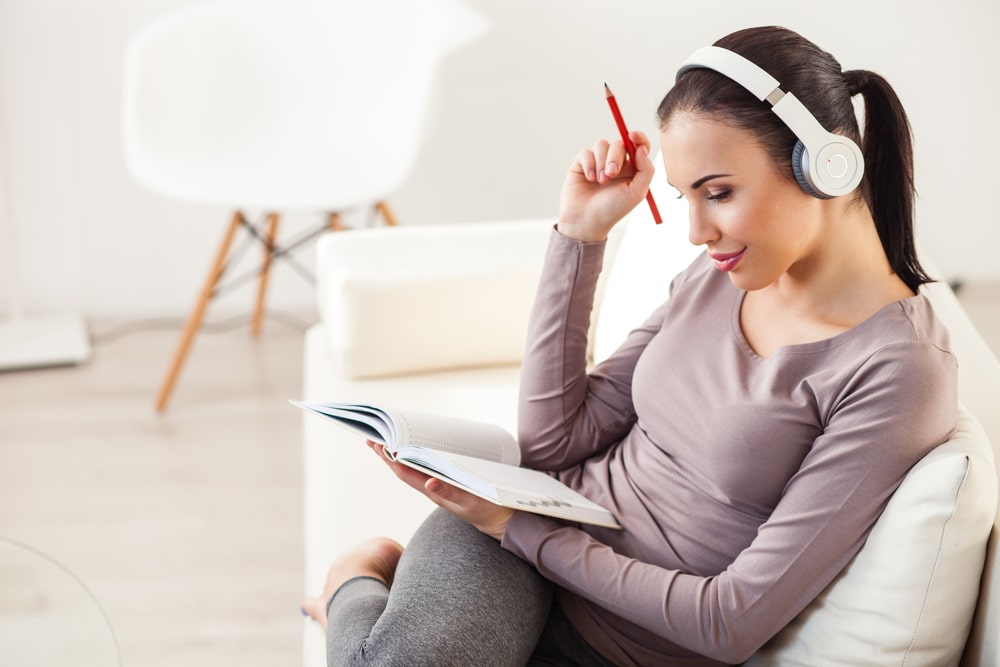How Can Women Deal with Dating Anxiety?

Key Takeaways:
- Understanding how can women deal with dating anxiety: Dating anxiety is a common issue that can arise due to various causes and can have a significant impact on individuals’ dating experiences.
- Managing dating anxiety: Effective strategies include establishing dating goals, setting healthy boundaries, practicing effective communication, creating a comfortable date environment, building trust through self-disclosure, practicing mindfulness, changing negative thought patterns, and practicing self-love and kindness.
- Supporting a partner with dating anxiety: Partners can support individuals with dating anxiety by educating themselves about the condition, actively listening and validating their feelings, offering specific support during anxious moments, encouraging individual therapy, and taking care of their own mental health needs.
Understanding Dating Anxiety
Understanding dating anxiety is crucial for women navigating the complex world of dating. In this section, we will shed light on the different aspects of dating anxiety, including its definition, underlying causes, and its impact on individuals. By delving into these topics, we aim to equip women with valuable insights and strategies to effectively cope with dating anxiety and find fulfillment in their romantic lives.
What is Dating Anxiety?
Dating anxiety: Where butterflies in your stomach become pterodactyls! It’s a psychological phenomenon that can arise from different causes. Like, bad past experiences, self-doubt, fear of rejection, or societal pressure.
It can lead to physical symptoms like higher heart rate, sweating, and trembling. And emotional issues like too much worry and self-criticism. This can make it hard to form connections and have romantic relationships.
But, by understanding dating anxiety, you can manage it better and have healthier relationships.
Causes of Dating Anxiety
Dating anxiety can come from many factors, making someone feel uncomfortable and worried when it comes to dating. These roots stem from personal histories, social pressures, and emotional weaknesses. Comprehending these causes is necessary to manage and defeat dating anxiety.
One major cause of dating anxiety is the fear of being rejected or abandoned. Past scenarios of being turned down can boost this fear, leading to anxiousness or self-doubt.
Social standards also have a huge impact on dating anxiety. Society can put tremendous pressure on people to meet certain criteria or standards when it comes to dating. This can lead to apprehensiveness as people go through these expectations, being scared of criticism and judgment if they don’t reach them.
Besides that, low confidence and self-esteem can be a factor. When people don’t feel sure of their value or think they don’t offer much in a relationship, it can elevate anxiety and prevent them from connecting with others.
On top of that, vulnerability can induce dating anxiety. Opening up emotionally and being vulnerable with a new partner can be daunting. Fear of getting hurt or being emotionally exposed can cause stress, causing some to stay away from relationships.
These causes make it clear how complicated dating anxiety is, combining personal memories, social effects, and individual insecurities. By recognizing and dealing with these underlying causes, people can begin to properly handle their dating anxiety and work towards creating healthier relationships.
Impact of Dating Anxiety on Individuals
Dating anxiety can be a major burden. It brings feelings of stress, nervousness, and self-doubt. This makes it hard to enjoy and engage in the dating process. Anxiety can also stop someone from forming genuine bonds with potential partners. Fear of rejection or judgment can prevent them from being honest and vulnerable. This can mean missed chances for meaningful connections and possible long-term relationships.
Further, dating anxiety can damage an individual’s self-esteem and confidence. Worrying about saying the wrong thing or being judged badly can make them feel inadequate. These negative thoughts and beliefs about themselves can hurt their self-image and make the dating world even tougher.
In addition, those with dating anxiety may have physical symptoms like increased heart rate, sweating, or stomach discomfort. These physical signs of anxiety can make dates even more upsetting, starting a cycle of greater anxiety.
Altogether, the effect of dating anxiety on individuals is huge. It affects their mental health, self-image, and capacity to relate to others. Identifying and confronting dating anxiety is essential for anyone who wants to conquer these obstacles and form healthy relationships.
Managing Dating Anxiety
When it comes to managing dating anxiety, there are several effective strategies to consider. From establishing clear dating goals, values, and needs to practicing mindfulness and changing negative thought patterns, this section covers a range of techniques to help navigate the challenges of dating. We’ll also explore the importance of setting healthy boundaries, effective communication, and creating a comfortable environment for a successful connection. So, let’s dive in and discover practical tips to better manage dating anxiety and foster healthy relationships.
Establishing Dating Goals, Values, and Needs
When it comes to dating anxiety, it’s essential to set goals, values, and needs. Doing this gives direction and purpose to the dating world. Knowing what you want in relationships and what values matter helps make better decisions and gauge compatibility. Acknowledging your needs sets boundaries and creates healthier relationships. Taking the time to decide these things gives self-confidence and a better understanding of what you seek in a partner.
Reflect on your aspirations and desires before dating. Decide if you want a long-term commitment or just casual companionship. Clarifying values gives a foundation for evaluating potential partners and seeing if they share the same beliefs. This increases the chance of success due to mutual understanding. Learn how women can deal with dating anxiety for more tips.
Recognizing your needs is necessary for creating healthy boundaries. Communicate your limits and set expectations for yourself and your partner. This encourages open communication, respect for each other’s individuality, and reduces anxiety.
Everyone’s goals, values, and needs differ. Don’t compare yourself to others or succumb to societal pressure. Embrace diversity and create opportunities from dating experiences.
Establishing goals, values, and needs helps navigate challenges that come with dating anxiety. It makes decision-making, compatibility assessment, and boundary setting easier. You’re more likely to find a compatible partner if you align your actions with your intentions. By acknowledging individuality and embracing growth, you can approach dating with confidence and empathy.
Setting Healthy Emotional and Physical Boundaries
Setting healthy boundaries, both physical and emotional, is vital when it comes to dating. Setting limits helps protect our wellbeing and keep us safe from harm. It lets us know what we are comfortable with regarding intimacy and contact.
Boundaries act as a guide for us to express our preferences and expectations to our date. This communication helps build trust and understanding, creating a foundation for healthy interactions. When both people understand each other’s boundaries, they can talk openly and respectfully about their comfort.
We can also use non-verbal communication to set boundaries. Body language, like keeping our own space or avoiding contact that makes us uncomfortable, is a great way to communicate our limits. Being clear and consistent with how we communicate our boundaries empowers us in our dating lives.
Take Sarah, for example. She had been on a few dates with Mark and started to feel pressured by him to do things she wasn’t comfortable with. However, she hadn’t told him about her boundaries. After having a conversation on the topic, Sarah and Mark felt closer and their relationship became healthier.
This story shows how setting our boundaries helps us form more fulfilling relationships and prevent awkward or uncomfortable situations. Talking to our date honestly and openly builds mutual respect and allows us both to be ourselves. Communication doesn’t have to involve a messenger pigeon – it just needs clear words.
Effective Communication with a Date
Creating a comfortable date environment is key for effective communication. Choosing a location both people feel comfortable in, reducing distractions and setting the stage for open conversations will help. Relaxation will let anxiety fade and allow meaningful interactions.
Building trust and connection with self-disclosure is important. Talk to your partner about experiences, thoughts and feelings to foster intimacy. Sharing vulnerabilities will let each person understand the other better.
Mindfulness regulates emotions, so be aware of your own emotional state. Don’t react impulsively or defensively, have thoughtful communication and consider both partners’ needs.
Challenge negative thought patterns and reframe them to have an open mind for conversation. This will create a more constructive atmosphere.
Practice self-love and self-kindness to communicate authentically without fear. Taking care of your own needs will ensure a secure emotional state in relationships. Create a date environment so cozy, you’ll forget your anxiety and just focus on who gets the last slice of pizza.
Creating a Comfortable Date Environment
- Choose a spot that is comfortable for both. Make it easy to talk and relax.
- Incorporate soft lighting, nice music, and comfy seating.
- Pay attention to the noise level, so conversation is not disrupted.
- Take any dietary restrictions into account when selecting a restaurant.
- Be mindful of small details like cleanliness, organization, and ambiance.
- Be interested in your date’s comfort. Check in to see if they’re okay and offer support when needed.
Focusing on an environment that’s comfortable helps individuals relax and make a genuine connection. Respect and understanding your date’s unique preferences and needs shows care. Listen and respond empathically to their requests. These details demonstrate consideration of their comfort.
Pro Tip: Have a backup plan and be flexible. Unexpected situations may arise and quick thinking or adjustment may help. This can prevent stress during the date.
Building Trust and Connection through Self-Disclosure
Self-disclosure is key in dating. It involves sharing personal info and experiences with a date to strengthen the bond. Opening up allows for vulnerability, honesty, and authenticity, aiding understanding and connection. This builds trust as both parties become aware of each other’s thoughts, feelings, and values.
Engaging in self-disclosure creates an environment that encourages open communication. It allows for the expression of emotions, fears, and desires, deepening understanding and connection between partners. Sharing personal stories and experiences fosters empathy and emotional intimacy, forming a strong base for a healthy relationship.
Self-disclosure also promotes mutual understanding between partners. By sharing personal information, individuals explain their background, values, goals, and needs. This helps both parties gain a better understanding of each other’s perspectives and expectations in dating.
By engaging in self-disclosure during dates, individuals create a space for openness and authenticity. This mindfulness and self-awareness allow for the growth of trust and connection between partners, leading to healthier relationships based on mutual understanding and empathy. Therefore, self-disclosure is vital in the dating process.
Practicing Mindfulness to Regulate Emotions
Practicing mindfulness involves being aware of your thoughts, feelings, and physical sensations in the present moment without judgment. It can be a great tool to regulate emotions, like anxiety, while dating. By focusing on the present and not reacting to negative thoughts or feelings, people can gain control over their emotional responses.
Mindfulness can help manage dating anxiety. It helps people approach situations with clarity and calmness. By being present during interactions with a date, individuals can better recognize their emotions and respond in an authentic way. This practice reduces overwhelming anxiety and creates emotional balance.
Mindfulness also increases self-awareness. This is key for understanding dating preferences, needs, and values. Being mindful of one’s own emotions allows people to make intentional decisions about who they want to date and what they want from a relationship. It also helps people communicate clearly and assertively.
Mindfulness encourages self-compassion and kindness. It teaches individuals not to judge themselves for feeling anxious or uncertain in dating situations. Mindfulness helps replace negative thought patterns with self-love and acceptance. By being kind to oneself during these experiences, people can regulate their emotions and be confident for future dates.
In conclusion, mindfulness is a powerful strategy for regulating emotions on dates. It enables people to be in the moment while fostering self-awareness, communication skills, self-compassion, and emotional balance. By incorporating mindfulness into their dating journey, people can navigate dating anxiety with confidence and kindness.
Changing Negative Thought Patterns
Negative thought patterns can have a severe impact on those with dating anxiety. These patterns often include self-doubt, pessimism, and fear of rejection. This creates a cycle of negative thoughts that can damage self-esteem and confidence.
To make a change, it is essential to challenge and reframe the negative thoughts. Replace them with more positive and realistic ones. To do this, you must be aware of the thoughts that arise when feeling anxious.
Practice self-compassion and kindness too, as this helps break the cycle of negative thinking. Developing a positive mindset makes it easier to approach dating with optimism.
CBT is another successful way of changing negative thought patterns. This focuses on identifying and transforming irrational beliefs related to dating anxiety. Cognitive restructuring is a method used to switch negative thoughts for helpful ones.
Remember, you need to love yourself before you can love someone else – it’s not just for narcissists!
Practicing Self-Love and Self-Kindness
Self-love and self-kindness are important. Prioritize your own well-being and treat yourself with care and understanding. This includes activities that bring joy, setting boundaries for physical and emotional space, and positive self-talk.
Cultivate a healthy relationship with yourself before entering a romantic partnership. Establish dating goals, values, and needs. Set healthy emotional and physical boundaries for safety and comfort.
Communicate openly and respectfully with your date. Express thoughts, feelings, and concerns. Plan a comfortable date environment to ease anxiety.
Self-disclosure helps foster deeper connections. Practice vulnerability to promote emotional intimacy and authenticity. Use mindfulness techniques like deep breathing or meditation to regulate emotions.
Address negative thought patterns. Challenge negative beliefs about yourself or relationships. Cultivate an inner voice that is kind. Acknowledge strengths instead of mistakes. For tips on dealing with dating anxiety in women, check out How Can Women Deal with Dating Anxiety?
Be your partner’s anchor in the storm of dating anxiety.
Supporting a Partner with Dating Anxiety
Supporting a partner with dating anxiety requires a compassionate and understanding approach. In this section, we explore various ways to provide the necessary support. From educating yourself about your partner’s anxiety to actively listening and validating their feelings, we’ll discuss effective strategies for navigating anxious moments together. Additionally, we’ll address the importance of encouraging individual therapy and prioritizing your own mental health needs. By implementing these approaches, you can play a crucial role in helping your partner manage their dating anxiety.
Educating Yourself about Your Partner’s Anxiety
Gaining knowledge about your partner’s anxiety is essential to understanding and helping them. Knowing the root cause, symptoms, and effects of dating anxiety helps you know how to be supportive. Learning about the struggles they face will help you give the best kind of help for them to manage their anxiety better.
Figuring out how dating anxiety affects people is vital for offering the right kind of help. It can result in feeling uneasy, worried about being rejected or judged, and trouble forming relationships. By educating yourself about these effects, you can recognize your partner’s behavior and reactions better. This understanding lets you give empathy, assurance, and patience when they have anxious moments during dates or relationship milestones.
Besides knowing general info about dating anxiety, it’s important to comprehend that everyone feels it differently. Taking the time to know your partner’s particular triggers or coping techniques will increase your ability to help them well. By listening without any judgement, and accepting their emotions and experiences, you generate an atmosphere of trust and understanding.
Rachel and Alex is a story that shows the importance of educating oneself about a partner’s anxiety. Alex had social anxiety disorder, which made social events hard for him. Rachel read books on social anxiety disorders and talked to therapists who specialized in this topic. This let her understand what he was going through and adjust her approach in social events. Through her interest in learning more, Rachel made a great positive effect on their relationship by helping Alex with his anxiety.
Active Listening and Validation
Active listening and validation are vital when supporting a partner who has dating anxiety. Active listening is about understanding and concentrating on what your partner is saying, without interruption or judgement. It also means offering verbal and non-verbal signs to show that you’re engaged. Validation, on the other hand, means recognizing and accepting your partner’s thoughts, feelings, and experiences as valid and important.
Active listening creates a secure space for your partner to express their anxieties and worries about dating. This can make them feel comprehended and supported, which in turn can reduce their anxiety levels. Validating their emotions can improve their self-esteem and overall well-being. When you actively listen and validate your partner’s experiences, it reveals empathy and helps build a stronger connection between you.
It is important to note that active listening is more than simply hearing what your partner is saying. It requires being present in the conversation, viewing both verbal and non-verbal cues. Practicing good eye contact, nodding, using affirmative gestures when suitable, and asking relevant questions to explain information or show interest are all techniques of effective active listening.
Aside from active listening and validation, providing reassurance and emotional support during anxious times is crucial. You can offer words of assurance, remind your partner of their strengths or positive qualities, or engage in calming activities together that promote relaxation. By paying attention to their needs and providing support in a sensitive way, you can help your partner manage their dating anxiety better.
By utilizing these strategies of active listening and validation, and also providing particular support during anxious moments, partners can create an environment of trust and understanding in their relationship. This assists people with dating anxiety feel seen, heard, cherished, and accepted as they tackle their fears in the dating realm.
Helping your partner through their anxious moments is like being a human stress ball – without the squishiness but with all the empathy!
Providing Specific Support during Anxious Moments
Anxious moments in dating can be tricky. So, it’s important to provide tailored support depending on the individual’s needs. Here are some strategies that can help:
- Understand triggers: Listen and engage with your partner to identify situations or thoughts that cause anxiety.
- Reassure & validate: Comfort them and let them know their emotions are valid. Show them you’re there for them.
- Relaxation techniques: Guide them through breathing exercises, progressive muscle relaxation, or other relaxation techniques.
- Grounding techniques: Suggest focusing on the present moment, using sensory distractions, or mindfulness exercises.
Remember, everyone’s experience is different – so communicate openly and adapt your approach accordingly. Plus, therapy is a great option to explore too. It can provide the perfect tools to help manage dating anxiety and build healthier relationships.
Encouraging Individual Therapy for Additional Support
Individual therapy can be a great way of supporting those facing dating anxiety. It is a safe and confidential space to explore and address anxieties in a focused and personalized way. Through individual therapy, people can understand the causes of their anxiety, learn how to manage symptoms, and build healthier relationships.
Exploring personal experiences and challenges related to dating anxiety is possible with one-on-one therapy. People can identify any unhelpful thinking patterns that are worsening the anxiety and work towards developing better perspectives on dating.
Therapy also provides tools to manage dating anxiety. Relaxation techniques, grounding exercises, and mindfulness practices can be taught to help regulate emotions and reduce anxiety. Plus, therapists can help set healthy boundaries and improve communication skills.
Individual therapy offers personalized attention and support. Therapists are experts in mental health and provide unbiased support, guidance, validation, and encouragement. They are dedicated to helping people feel heard, supported, and empowered.
Seeking individual therapy is not a sign of weakness or failure. It is a sign of strength and resilience. It takes courage to realize when extra help is needed; doing so shows commitment to self-care and personal growth.
Taking Care of Your Own Mental Health Needs
Tending to one’s mental well-being is key to handling dating anxiety. It is essential to make your mental health needs a priority in order to cope better and build strong relationships. By taking proper care of yourself, you can better support yourself and your partner in managing dating anxiety.
- Recognizing and validating emotions: Taking the time to spot and accept your feelings leads to a healthier self-awareness which can positively influence your overall well-being.
- Doing self-care activities: Doing activities that bring you joy and provide relaxation can help lower stress levels, promote self-love, and boost your mental resilience.
- Seeking help from people around you: Connecting with friends, family members, or therapists who offer non-judgmental advice can be invaluable in dealing with any concerns or anxieties you may have.
- Managing stress: Making use of stress reduction methods such as working out, meditation, or journaling can help reduce anxiety and promote a sense of serenity.
- Setting limits: Establishing clear limits within relationships helps keep your mental well-being by making sure your needs are respected and met.
Taking care of your own mental health needs goes beyond usual self-care practices. It includes building emotional resilience through positive coping techniques, seeking help from those around you or experts when needed, and prioritizing your well-being. By consciously caring for these aspects, you become better able to navigate dating anxiety while nurturing personal growth and sustaining healthy relationships.
Emily was battling dating anxiety for years. She felt overwhelmed by social situations and was scared of the possibility of rejection. But, once she began to prioritize her mental health needs by doing self-care activities like yoga and getting therapy for additional support, she saw a huge improvement in her capability to manage her anxiety. Emily’s story is a proof of the power of taking care of one’s own mental health needs and the positive effect it can have on overcoming dating anxiety.
Therapy isn’t just for your ex’s issues, it’s also for yours.
Seeking Professional Help for Dating Anxiety
Seeking professional help for dating anxiety can make a world of difference. From knowing when to consider therapy to discovering the benefits it brings in managing dating anxiety, as well as exploring different therapy approaches available, and understanding the importance of self-reflection in seeking help if needed, this section provides invaluable insights for women navigating the challenges of dating anxiety.
When to Consider Therapy
Considering therapy for dating anxiety is important. Signs that you need help include:
- persistent fear or unease
- excessive worry
- avoiding dating situations
- having difficulty maintaining relationships
- impacting daily functioning
- causing distress or impairment
- self-help not working
Therapy is beneficial. It provides a safe space to explore and address underlying issues. A therapist can help develop coping skills, challenge thoughts, and build confidence.
Consider therapy if there’s a history of trauma or past relationship difficulties. It can offer an opportunity for healing and understanding, as well as tools for overcoming anxiety.
Seeking professional help for dating anxiety can offer insight into fears, learn coping strategies, and work towards healthier relationships. Therapy provides support and guidance, promoting personal growth and enhancing overall well-being.
Benefits of Therapy in Managing Dating Anxiety
Therapy is a valuable resource for managing dating anxiety. It offers a variety of benefits. Through therapy, individuals can gain understanding into their anxieties and techniques to overcome them.
Benefits include emotional and practical growth. Therapy provides a secure, non-judgmental space to discover the source of their anxiety. It also equips them with coping strategies and helps them to handle the complexities of dating, such as social interactions and building relationships.
Overall, therapy gives them the confidence to tackle their dating anxiety and pursue meaningful connections. So, if you’re struggling with dating anxiety, consider the benefits of therapy. It could be the key to conquering your fears.
Different Therapy Approaches for Dating Anxiety
Anxiety related to dating can be managed through various therapy approaches. These attempts intend to diminish the distress and terror linked to dating by giving people instruments and methods to overcome their fear.
- Cognitive-Behavioral Therapy (CBT): This therapy assists individuals in pinpointing and confronting negative thought processes that lead to dating anxiety. By assessing and restructuring their beliefs, people can create better and realistic perspectives of dating, lowering anxiousness.
- Exposure Therapy: Exposure therapy involves exposing people gradually to feared situations while in a secure and supportive atmosphere. By tackling their anxieties, people can slowly make themselves less sensitive to their worries and develop better managing techniques.
- Mindfulness-Based Stress Reduction (MBSR): MBSR adds mindfulness meditation practices into the treatment of dating anxiety. With these tactics, individuals learn to observe their feelings and thoughts without judgment, enabling them to react more efficiently to nervousness.
These therapy approaches offer distinctive advantages in treating dating anxiety. CBT concentrates on replacing negative thought patterns, exposure therapy targets fears through progressive exposure, and MBSR educates people how to manage anxiety through mindfulness practices. By contemplating these distinct therapeutic possibilities, individuals can locate an approach that matches their exact needs and preferences in overcoming dating anxiety triumphantly.
It’s imperitive for those dealing with dating anxiety to get professional help right away. Specialists in anxiety disorders can offer personalized advice and support throughout the healing process. Along with therapy, implementing self-help strategies such as practicing self-care, engaging in calming activities, seeking help from dependable friends or family members, and keeping up healthy lifestyle habits can also contribute positively to managing dating anxiety.
By carrying out these tips along with therapy sessions, individuals can acquire valuable insights into their anxieties while forming efficient coping mechanisms for facing them.
The Importance of Self-Reflection and Seeking Help if Needed
Self-reflection and seeking help are essential for managing dating anxiety. Take the time to examine your feelings, thoughts, and behaviors in relation to dating. Through this process, identify any negative thought patterns or beliefs that could be causing your anxiety. Replace them with positive ones to manage your dating anxiety.
Seeking help is also critical. Therapy can provide a safe space to explore anxieties and develop coping strategies. Therapists can offer tailored support to navigate dating with confidence. Additionally, support from loved ones can give understanding, encouragement, and perspective.
Engaging in self-care and stress reduction activities can be beneficial too. This can include mindfulness techniques, hobbies, regular exercise, balanced nutrition, and social support.
By actively engaging in self-reflection, seeking professional help, and practicing self-care techniques, individuals can overcome dating anxiety and build fulfilling connections. The journey may not be easy, but with the right support, you can find the strength to navigate your anxieties and enjoy love’s rollercoaster.
Overcoming Dating Anxiety and Building Healthy Relationships
In the pursuit of overcoming dating anxiety and building healthy relationships, this section offers valuable insights. From embracing growth and seizing opportunities in dating, to practicing patience and celebrating small wins, we explore strategies that can make a significant difference. Engaging in activities that distract from anxiety and managing personal stress are additional avenues to explore. Lastly, we delve into affirming the positive aspects of your partner and actively strengthening the relationship. Let’s dive in!
Embracing Growth and Opportunity in Dating
Embracing growth and opportunity in dating is a must for those who want meaningful connections. It requires being open to new experiences, personal growth, and potential growth. Taking a mindset of learning and self-improvement when it comes to dating allows individuals to take advantage of the possibilities each encounter holds.
Stepping out of one’s comfort zone and taking risks is key for embracing growth and opportunity. It’s important to look at rejections and setbacks as opportunities to grow instead of personal failures. This mindset helps people expand their horizons and gain a better understanding of themselves and what they want in a partner.
By embracing growth and opportunity, people can learn from their past relationships or experiences. They can identify patterns and refine their dating goals, values, and needs. This mindset also encourages active listening and considering different perspectives.
Embracing growth and opportunity means recognizing that not every interaction will lead to a lifetime relationship. Rather than feeling discouraged, individuals should appreciate the moments of connection or joy they experience. Each date is an opportunity to learn more about oneself, explore different interests, and potentially form new friendships.
Sarah embraced growth and opportunity by coming into each interaction with an open mind. She knew not every date would lead to a long-term partnership, but appreciated the unique qualities or lessons gained. Through this shift in mindset, Sarah became more confident and enjoyed meeting new people without placing too much pressure on herself or her dates. Eventually, she found a partner who shared her values and goals through this open-minded approach.
Practicing Patience and Celebrating Small Wins
Patience and celebrating small wins are vital for managing dating anxiety. Building a healthy relationship takes time – don’t rush. Acknowledge and appreciate the small successes you have. This builds confidence and keeps a positive outlook, leading to better relationships.
Set realistic expectations in dating. Don’t expect progress to happen quickly. Be patient with yourself and the other person. Appreciate the small steps forward – like expressing vulnerability or having meaningful conversations. Enjoy the journey and live in the moment.
Small wins can reduce dating anxiety. Acknowledge personal growth and positive experiences. This shows your strengths and progress, and gives you motivation to keep going.
Engaging in Activities that Distract from Anxiety
Distracting from anxiety involves finding ways to shift attention away from worrisome thoughts and feelings. Engaging in activities that promote relaxation, pleasure, and calmness can help! Here are some ideas:
- Create art, write, or play music.
- Exercise or go outdoors like hiking or swimming.
- Do yoga or meditate to be mindful in the present moment.
- Connect with loved ones and have fun social activities.
- Explore nature by going for a walk, picnicking, or sitting outside.
- Indulge in self-care activities, like taking a bath, reading, or listening to calming music.
Shifting focus away from anxious thoughts can give a much-needed break. Doing this can help wellbeing and strengthen relationships. Try different activities to find out what works best for you! Taking regular breaks from anxious thoughts can keep stress away, helping your relationship stay!
Managing Personal Stress to Reduce Relationship Stress
Personal stress management is key to reducing relationship-related stress. Managing one’s own stress levels can create healthier and more balanced relationships. Here are strategies that can help:
- Identifying triggers. Being aware of personal stress triggers allows people to address them before they affect relationships. Self-awareness helps manage stress and prevent it from causing problems.
- Practicing self-care. Doing activities that promote self-care, like exercise, relaxation techniques, and hobbies can reduce stress. Taking time for oneself improves well-being and positively impacts the relationship.
- Seeking support networks. Building a supportive network of friends or seeking therapy can provide emotional support during stressful times. Talking to someone can help manage stress and stop it from affecting the relationship.
- Effective communication. Expressing needs, concerns, and boundaries openly and honestly with one’s partner is key when managing personal stress within a relationship. Couples can work together to understand and support each other during stressful times.
Managing personal stress is a continual process that requires effort. These strategies can help reduce stress and create a healthier foundation for relationships.
Self-compassion, self-reflection, and self-love are also helpful when managing stress. Cultivating kindness towards oneself can better cope with stress and prevent it from harming relationships.
Sarah was feeling high levels of personal stress due to work. This stress impacted her relationship, causing tension and conflict. She started prioritizing self-care activities such as yoga and journaling. As she developed healthy coping mechanisms, she noticed her well-being and relationship satisfaction improve. By reducing personal stress, Sarah was able to have a better relationship with her partner.
Affirming the Positive Aspects of Your Partner and Strengthening the Relationship
Expressing gratitude, having frequent communication, and offering mutual support are all essential for nurturing a strong and healthy relationship. Affirming the positive aspects of your partner and strengthening the connection goes beyond mere acknowledgement – it involves actively nurturing and fostering growth.
Acknowledge each other’s individuality and celebrate the differences rather than viewing them as obstacles. Embrace these practices consistently for increased satisfaction, improved emotional connection, deeper intimacy, and a greater sense of mutual support.
Note: These points provide a brief overview of affirming the positive aspects and strengthening the relationship. They are not exhaustive and may require adaptability and communication specific to your partner’s needs.
Conclusion: Dating with Confidence and Empathy
Women can take on dating with confidence and empathy. Strategies exist to tackle dating anxiety. To do this, women must build confidence and practice empathy. Recognize worth and believe in self and abilities.
Take time to understand and empathize with others. It builds a more meaningful experience. Focus on strengths and accomplishments. Set realistic expectations. Be positive. Take care of self and improve. This will give more confidence and successful dating.
Empathy is key when it comes to dating. Put yourself in the other person’s shoes. Listen and understand their perspective. Show genuine interest. This will build stronger connections and a better experience.
Some Facts About How Women Can Deal with Dating Anxiety:
- ✅ Dating anxiety can be overwhelming, especially for individuals with anxiety disorders or other mental health conditions. (Source: Verywell Mind)
- ✅ Practicing relaxation techniques such as deep breathing, guided imagery, and mindfulness meditation can help reduce anxiety levels before a date. (Source: Team Research)
- ✅ Openly admitting your anxiety to your date can alleviate some of the pressure and lead to a positive response and words of support. (Source: Team Research)
- ✅ It’s important to voice your preferences and be involved in making the dating plans to reduce uncertainty and fear. (Source: Team Research)
- ✅ View any dating experience as a positive step and be kind to yourself if a date doesn’t go well due to anxiety. Each experience will likely be better than the last. (Source: Team Research)
FAQs about How Can Women Deal With Dating Anxiety?
How can women deal with dating anxiety?
Women can deal with dating anxiety by implementing various strategies:
- Admit your anxiety: Being open and honest about your nervousness can alleviate some of the pressure and help your partner respond positively, offering words of support.
- Limit social media and online dating app usage: Taking a break from social media can improve your mental health and reduce anxiety related to comparing yourself to others.
- Practice relaxation techniques: Techniques such as deep breathing, progressive muscle relaxation, mindfulness meditation, and journaling can help reduce anxiety levels before a date.
- Seek professional help: If your anxiety is interfering with your ability to date or function in daily life, it’s recommended to seek support from a therapist or a healthcare professional.
- Establish healthy boundaries: Set emotional and physical boundaries in your dating relationships to ensure that you feel safe and respected.
- Take care of your physical and mental health: Engage in self-care practices such as eating well, exercising, and getting enough sleep to manage anxiety symptoms.
My Go-To Platform for Flings, Affairs, and MILFs
Looking for top-notch flings, affairs, or MILFs? Skip the rest, AdultFriendFinder is the gold standard. Zero bots, zero fakes—just real connections. I've scored big in multiple cities. Sign up now, it's FREE!













